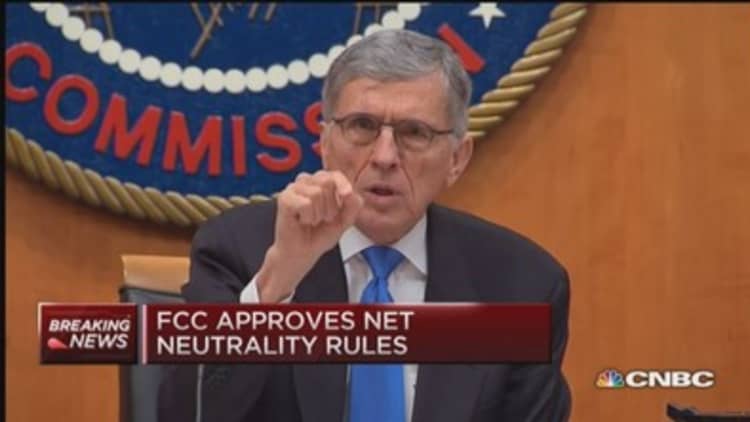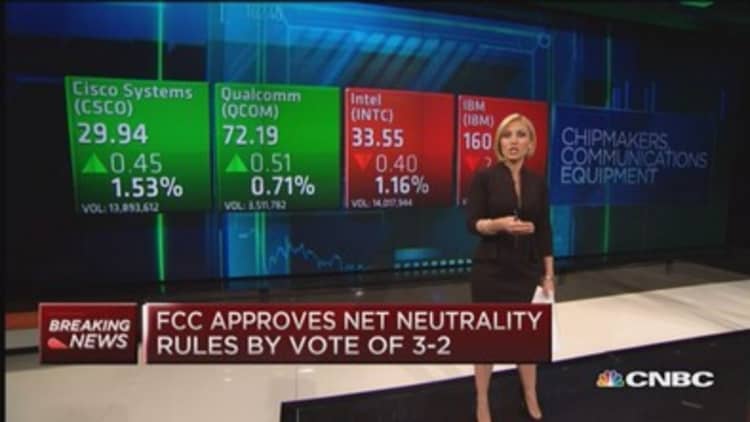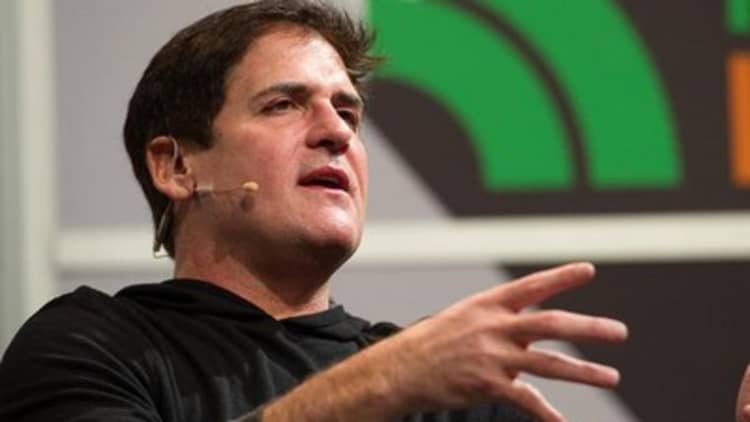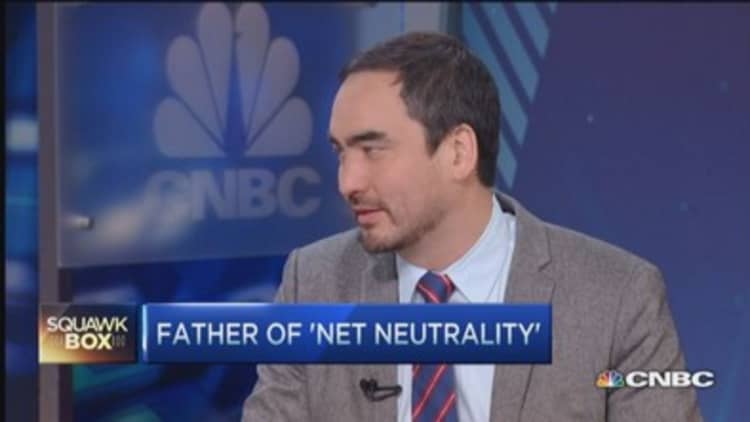


The Federal Communications Commission on Thursday approved net neutrality rules that restrict Internet providers' ability to control download speeds.
The measure, which is backed by President Barack Obama, passed with a 3-2 vote along party lines.
"These new rules are guided by three principles: America's broadband networks must be fast, fair and open, principles shared by the overwhelming majority of the nearly 4 million commenters who participated in the FCC's Open Internet proceeding," the FCC said in a release.
Net neutrality has prompted contentious debate as the FCC considered passing the regulatory measure. Proponents tout its emphasis on treating all Internet traffic equally, while critics contend that the regulations are a government invasion of private enterprise.
Read MoreWhat the net neutrality battle is really about
Cable and telecom providers argue that stricter measures would stifle investments, while Republicans see the rules as a government power grab. The agency pursued new net neutrality rules after a federal court rejected a previous version in January 2014.
The "Open Internet Order" passed Thursday will prohibit broadband providers from blocking lawful Internet traffic on the basis of content, the FCC said. It also bans "paid prioritization," which would favor some traffic or create paid Internet "fast lanes."
"The bright-line rules against blocking and throttling will prohibit harmful practices that target specific applications or classes of applications. And the ban on paid prioritization ensures that there will be no fast lanes," the FCC said in a release.
Read MoreWho wins—and who loses—on net neutrality rules
Obama on Thursday said that the FCC's move encourages innovation and levels the playing field for Internet entrepreneurs.
FCC Chairman Tom Wheeler, who publicly championed net neutrality, said in a release that the agency faces a challenge in encouraging investment in broadband while promoting open Internet.
"Our challenge is to achieve two equally important goals: ensure incentives for private investment in broadband infrastructure so the U.S. has world-leading networks and ensure that those networks are fast, fair and open for all Americans," he said.
The vote has not been unanimously praised, though. Verizon in a statement called the regulations "unnecessary" and "misguided."
"The FCC's move is especially regrettable because it is wholly unnecessary. The FCC had targeted tools available to preserve an open Internet, but instead chose to use this order as an excuse to adopt 300-plus pages of broad and open-ended regulatory arcana that will have unintended negative consequences for consumers and various parts of the Internet ecosystem for years to come," Verizon said.

Tumblr CEO David Karp told CNBC's "Squawk Box" on Tuesday that the proposed FCC net neutrality regulations would ensure a "free, open marketplace of services."
"I think [it's] a bright-line rule that sort of spells out the principles that we believe in, I think the Bill of Rights, is a good thing," Karp said.
Watch: What is net neutrality anyway?
—CNBC's Matthew Belvedere and Reuters contributed to this report.


